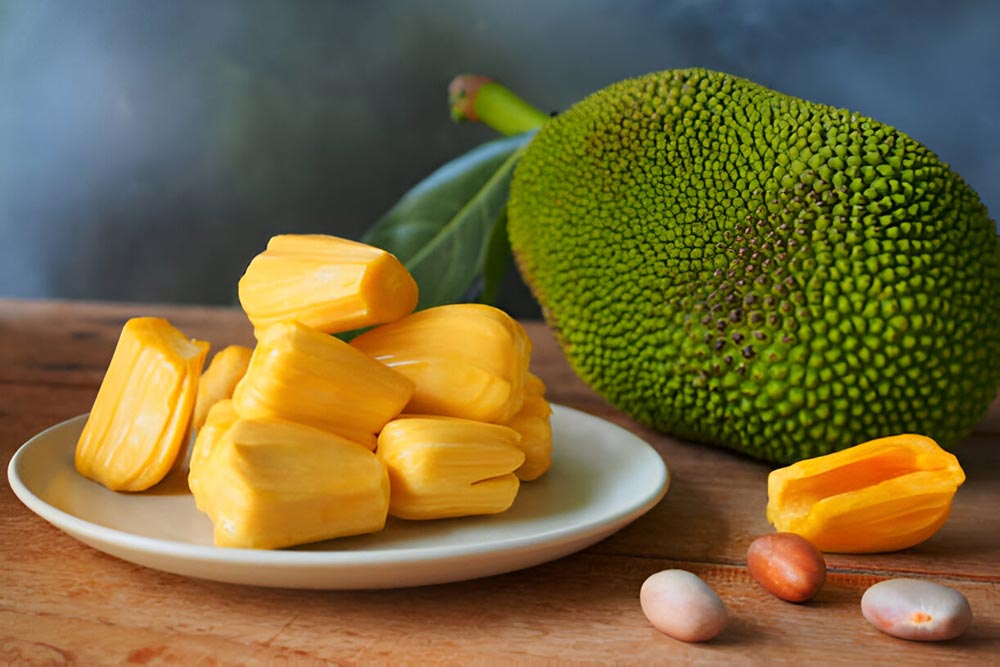
For the many Ugandans out there, you surely have a story about jackfruit. I, for one, once got a severe beating for an unauthorised harvest of a jackfruit. Well, what can I say? Village life then was a whole new world. Fruit and food were in abundance, just waiting to be had, and as such, my friends and I had a go… the heist just didn’t go as planned. God, those were the days.
In today’s food industry, where veganism is on the rise, the search for meat alternatives rich in equivalent nutrients is the trend. Uganda aims to capitalise on this through various innovative initiatives and export strategies.
One of the most exciting developments that caught my eye is the rise of jackfruit as a key export commodity. Traditionally enjoyed ripe and fresh, this versatile fruit is now being processed and exported in various forms to meet the global demand for plant-based foods. Apparently, when unripe, jackfruit can be boiled to achieve a meaty texture, making it a popular meat substitute for various vegan dishes. It is this particular trait that makes it so popular in the European market. I have tasted roasted jackfruit seeds, but boiled? That’s a new one.
Companies like Zahra Food Industries and Fibre Foods are at the forefront of this transformation, providing opportunities for local farmers and positioning Uganda as a significant player in the international market.
Zahra Food Industries, a leading player in Uganda’s food processing sector, has made significant strides in adding value to jackfruit. The company collaborates with around 300 smallholder farmers who supply the fruit. Zahra then processes it into various products like dried jackfruit and flour, which are exported to international markets to make edibles such as jackfruit burgers, curry, and more.
The processing involves cleaning the jackfruit, peeling off the spiky green exterior and then slicing it before dehydrating it in a way that retains its nutritional content. This process transforms the perishable fruit into a versatile ingredient suitable for global markets, where it is increasingly sought after by health-conscious consumers and those following a vegan diet.
According to Fruitnet, through research, trial and error, the company has established that only young jackfruit is best suited for drying. When rehydrated, the dried jackfruit expands in volume by eight times, achieving that meaty texture so sought after by meat substitute manufacturers. The resulting dried jackfruit can be enjoyed as a snack or rehydrated and incorporated into various recipes, especially those following vegan diets.
This value addition not only increases the product’s shelf life but also enhances its marketability, allowing it to compete with other plant-based alternatives globally.
Fibre Foods, another innovative company in Uganda, focuses on creating a scalable value chain for dried jackfruit. Supported by investments from agri-food startups like FoodSparks, Fibre Foods has established a robust supply chain that benefits many small-scale farmers. Their main product, PrimeJack, is also dehydrated jackfruit marketed as a meat substitute.
PrimeJack’s success is a testament to the growing demand for sustainable and healthy food alternatives, especially on the global market. The product is high in fibre and low in calories, offering nutritional benefits that appeal to a wide range of consumers. By promoting jackfruit as a viable meat substitute, Fibre Foods is helping to diversify Uganda’s agricultural exports and tap into the lucrative global market for plant-based foods.
The rise of jackfruit as an export commodity is having a profound impact on Uganda’s emerging economy. Smallholder farmers are now seeing significant income boosts through these value-added companies. For instance, the average farmer partnering with Zahra Food Industries has seen their annual income increase by 20%, thanks to the demand for processed jackfruit products, as reported by Fruitnet. This additional income not only improves standards of living but also encourages the adoption of the fruit.
However, this kind of commercialisation of jackfruit is completely new to Uganda. Currently, there is not a single commercial jackfruit farm in the country, only that the fruit is widespread enough to sustain the still-growing initiative. According to market analysis, the plant-based food sector is expected to continue expanding as more consumers adopt vegetarian diets. Jackfruit, with its meat-like texture and versatility, is perfectly suited for this demand, hence putting these Ugandan companies in a favourable spot to capitalise on its commercialisation.
From a humble village fruit to a sought-after global commodity, jackfruit is playing a crucial role in driving economic growth for Uganda. While the end consumer might never know of this end of the process, these companies are doing great for the local farmer, with even greater projections as the industry grows.